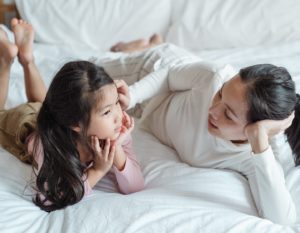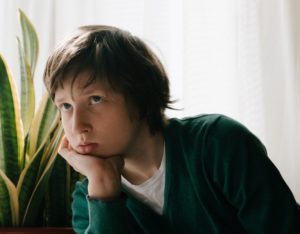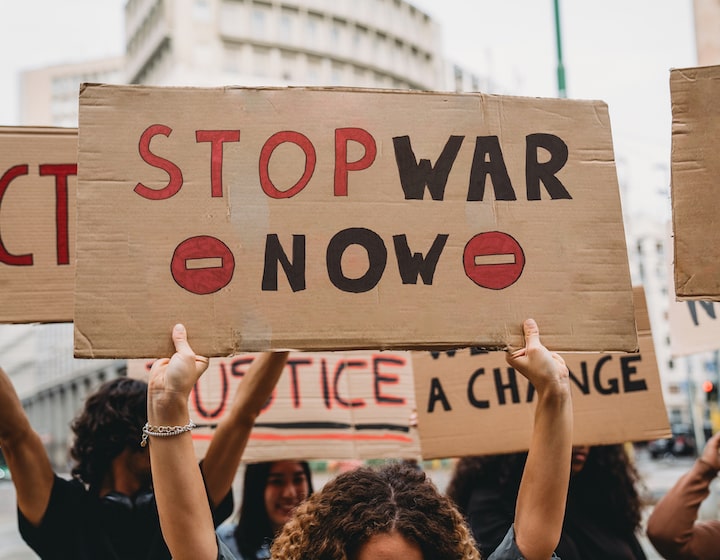
 Post Category - ParentingParenting - Post Category - Older KidsOlder Kids
Post Category - ParentingParenting - Post Category - Older KidsOlder KidsShould we be talking to kids about the war or shielding them from it? How do you discuss the Russian invasion of Ukraine or ongoing violence (like Israeli–Palestinian conflicts and the war in Syria to name just a few) in an age-appropriate way?
My husband and I were talking about what was happening in Ukraine when it suddenly occurred to me, do the children know? How much of it do they understand? We have always been upfront in talking about realities with the kids in a way that they can comprehend. I believe that we as parents should be the people our children turn to whenever they encounter something hard and difficult to understand. But it’s not always easy to know how much detail to go into about ‘scary’ and complex topics like war with our kids.
I started the conversation by asking our 11-year-old if he is aware of what is happening in the world right now. It turns out, he already knew about the Ukraine crisis as he was with a friend whose dad was talking about it. My 9-year-old knew about the war as well because she is currently learning how to write news reports and has been on the internet researching. It is inevitable that our children will find out about this especially since it’s all over the news and social media.
The questions from our different aged kids varied from “Are there many wars?” to “Have you been to Ukraine?” “How far is Singapore from Ukraine?”, “Where do the people who flee Ukraine go?”, “Why are men not allowed to leave?” “Who is on Russia’s side? Is this going to be World War III?” and “Why doesn’t Putin listen to the people?”
Read More: How to Have HONEST Conversations with Older Kids
Here’s what I want to share on why and how we can talk about the war in Ukraine with our kids.
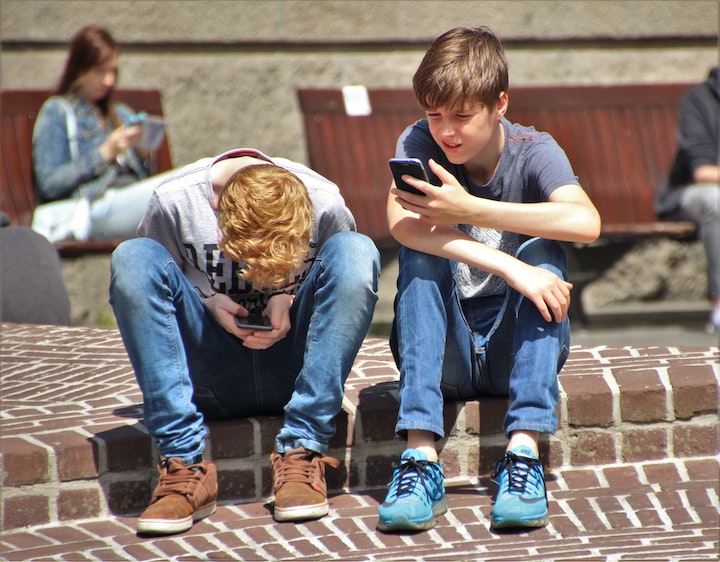
Before you start this conversation with your child, here are a few tips you can do to prepare:
1. Process your feelings first
Process your feelings before you even start the conversation with your child. Know what your stand is because chances are, your children will follow suit. The conversation about the war with children is meant to give them clarity, security and allow them to express whatever it is they are thinking and feeling about it. In our case, it was very clear that we stand with Ukraine and condemn war.
2. Set the tone
Ask yourself what is it that you want your child to remember and feel along with the facts that are happening? For example for us, we want them to be aware but not afraid, and to know that no one wins in war and that oppression is bad. For our older kid, we use it as an opportunity to ask critical thinking questions about conflict and what is the war trying to achieve or is there an advantage to be part of NATO or not, is it good to sanction Russia or not?
3. Break the conversation into bite-size pieces and revisit the topic
Remember, the conversation (like other ‘big’ conversations on puberty and sex) need not happen all in one go. You can break it into smaller pieces as you yourself prepare on how to discuss it with them. And even if your child seems to not be affected by the news, it is always good to check back in a few days or weeks.
4. Prepare kid-friendly resources to consult
Have on hand a list of reliable resources you can consult if they want to know more. You may want to look at these to ‘vet’ them first as for younger children some photos and news stories can be distressing. This is also an opportunity to teach the kids that not all sources are reliable and that there is a lot of misinformation on the web and social media. I have listed some resources below that are kid-friendly with age guides.
Read More: Are The Kids REALLY Okay?
Why talk to kids about the news and war at all?
Kids are probably seeing parents or teachers worried or even upset with what is happening in Ukraine.
We or our kids might have Russian or Ukrainian friends here in Singapore.
We might have friends or family living in Ukraine or Russia or family business in those countries.
It is better for us to talk to our kids about these topics than have them find out more on their own. Discussing tragic and sad news with our children allows us to guide them and comfort them along the way. Parents are the best source of security for kids, especially in a time when it is difficult to understand what is going on.
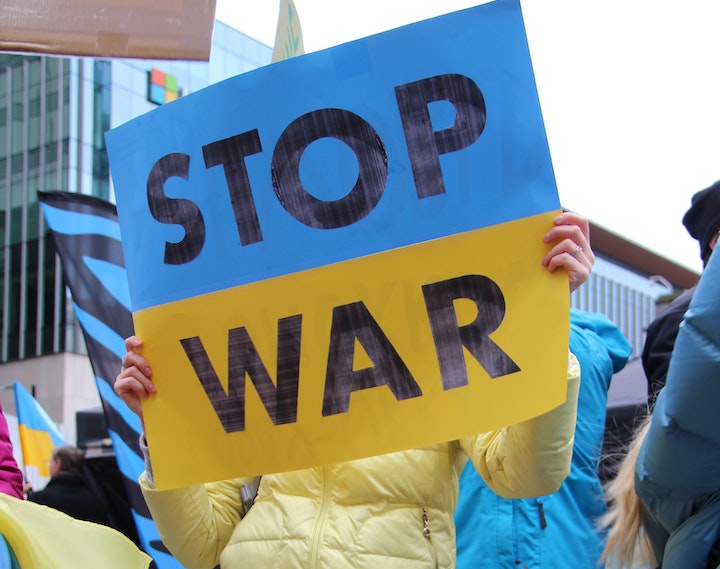
When to start talking to kids about the war: age guide
Kids below 8: Need not know unless they ask us or hear us discuss it as a family. Keep them away from the news as much as possible as they might easily confuse facts and fantasies. Focus on making them feel safe.
Kids from 8 – 12: Might be more worried and need help processing what they are hearing from others or chance upon the internet and need guidance. Take cues from them. Answer their questions and keep it simple and do not over explain. Filter the news and use kid-friendly news sites. Let them express how they feel in various ways but also remember it’s ok if they do not feel affected.
Teens: Continue to take cues and check in on them. Listen to their stance, discuss their resources to make sure they are credible as a lot of misinformation is going on. Help and empower them if they want to take action
How to talk to kids about war
1. First ask them what they have heard about the war. This will allow you to gauge what they already know and clear up any untruths.
2. Ask them what they want to know about it (and simply answer what needs to be answered).
3. Guide them in finding the answers together if they ask you questions that you can’t answer yourself. Different ages will have various suitable sites to go to.
4. Tell the truth but keep it simple. Kids will react differently, especially the younger ones as “war” is something they may not fully comprehend. It is ok that they do not feel affected. Some older kids on the other hand, might start to feel anxious and scared and it’s important to make them feel safe and secure. Address any anxiety or concerns with empathy and do not brush it aside. Encourage them to express how they feel. And if they want to take action, help and empower them to do so.
Recommended reading for kids wanting to know more about the war in Ukraine:
- Russia declared war on Ukraine. Here’s why. (Recommended age group: 10-12 years old)
- Crisis in Ukraine (Recommended age group: 10-12 years old)
- Russia invades Ukraine, world leaders condemn attack (Recommended age group: 12-14 years old)
- Links on how to help Ukraine: Sassy Mama has an article on how to donate to verified organisations (you may want to skip the personal story if reading with kids).
Great news sources for kids:
www.cbc.ca/kidsnews
www.newsforkids.net
www.timeforkids.com
Other parenting resources on talking to kids about the news:
How to Talk to Kids About Scary News
Helping Children Cope With Frightening News
How To Talk To Kids About Tragedies In The Media
How Young People Perceive and Are Impacted by the News
How to Talk with Children About the Conflict in Ukraine
NY Times: How to Talk to Kids About Ukraine
Read More:






 View All
View All





 View All
View All



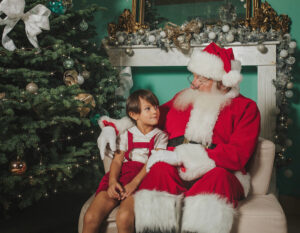





 View All
View All




